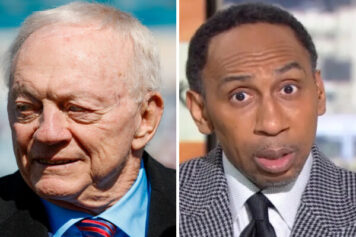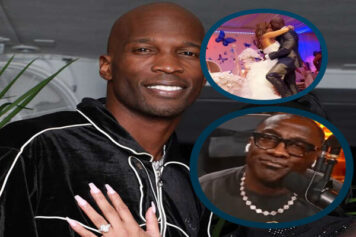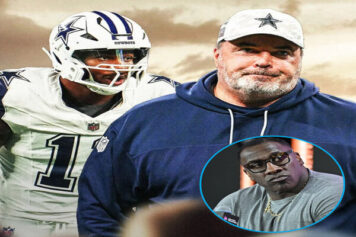FS1 “Undisputed” co-host Shannon Sharpe was recorded at Los Angeles International Airport apparently picking up a dog he purchased. Sharpe approached the individual who had followed him through the terminal and asked, “Really, why?” to which the individual responded, “why not?”
Sharpe took to Twitter and quote tweeted a user who posted the video, wondering what was wrong with someone that they would record Sharpe in that matter. The Hall of Fame tight end tweeted:
“SOME PPL have become really weird looking for paydays
“
SOME PPL have become really weird looking for paydays 🤡 https://t.co/YyuXgzlxbF
— shannon sharpe (@ShannonSharpe) February 10, 2023
Celebrities are not public officials
What’s really at question here is celebrity and the right to privacy.
Sharpe is a famous person in the world of sports and entertainment. He had a distinguished playing career in the NFL, and is co-host of a popular television sports show.
But Sharpe is not a public official or servant. All celebrities are not necessarily public figures. Like us mere mortals, they have constitutionally protected rights to safety, privacy, and freedom of self-expression. His personal life is not a matter of public concern.
But those rights are willfully violated on a regular basis and we chalk it up to “that’s the price you pay for being rich and famous.” But it shouldn’t be.
Our obsession with celebrity culture and gossip have led us down a destructive path. People have lost their lives; the disconnect between the rich and famous and regular folk has widened.
Constitutional law professor Robin Barnes has studied this phenomenon and wrote extensively about it in her book, “Outrageous Invasions: Celebrities’ Private Lives, Media, and the Law.”
“We know we have to keep an eye on public officials,” Barnes said in an interview. “The question is, does that entitle us to know everything about Monica Lewinsky’s dress? Why throw every athlete, actor, and musician into the same pot? Celebrities are not public servants. They don’t wield that much influence. That argument is specious at best. The European Convention contains specific provisions that identify human dignity as a paramount value. Individuals, including members of the media and representatives of the government, must behave in ways that are respectful toward a person’s private and family life. Not so in the United States, where free speech always trumps.”
24/7 access is unavoidable
It should be noted that celebrities do wield some level of influence but not in ways that actually matter to governance, which is what Barnes is referring to in her work.
There is an accepted belief in the U.S. that because someone is famous we “deserve” to know everything about them. But we don’t.
Sharpe’s purchase of a dog is not a matter of public concern, safety or anything that warrants attention.
But this is the age of the internet, instant success and 24/7 access. With the majority of people roaming the streets with video cameras (cell phones) in their pockets, everything is subject to be captured. Good and bad. This is the world we currently live in.
It shouldn’t be this way, but here we are.
Sharpe’s question “why?” and the subsequent “why not?” response is indicative of who and what we are as a society.

 “
“

